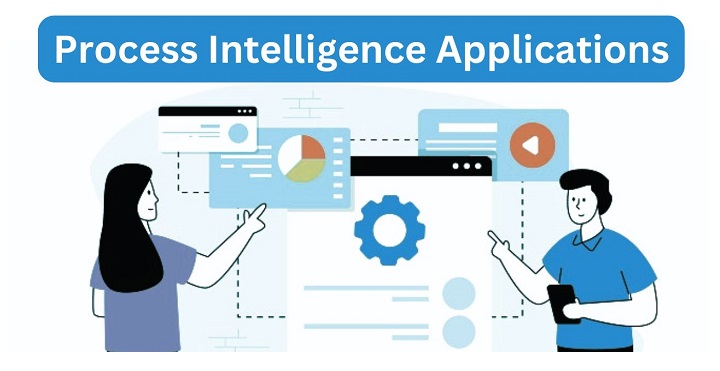
- Process Intelligence - Home
- Process Intelligence - Introduction
- Process Intelligence vs Process Mining
- Process Intelligence - Data Collection
- Process Intelligence - Tools
- Process Intelligence - Applications
- Process Intelligence - Benefits
- Process Intelligence - Challenges
Applications of Process Intelligence
This chapter is meant for explaining the key applications or use-cases of process intelligence. In today's world of data and technological advancements, business organizations feel constant pressure to speed up their production, optimize workflows, eliminate errors, minimize operational costs, and meet the targeted goals. Process intelligence allows these organizations to achieve all these expectations by combinedly using advanced technologies like process mining, artificial intelligence, and advanced data analytics.

Process Intelligence enables organizations to effectively manage and enhance their processes and workflows by providing a detailed view of processes. Let's discuss some use-cases that show how process intelligence allows business organizations to revolutionize their workflows and operations.
Process Intelligence Use Cases
Some of the key applications of process intelligence in business organizations are explained here −
Process Discovery
Process discovery is one the very common applications of process intelligence. Businesses use process intelligence to know how their processes are actually executing within the organization. It makes use of event log data to automatically generate maps of processes and workflows in real-time and allows organizations to identify inefficiencies and non-compliance.
Process intelligence provides an error-free and faster approach for process discovery which is completely data-driven, instead of based on assumptions or manual mapping.
Workflow Optimization
Process Intelligence also plays an important role in optimizing workflows and operations within a business organization. As we know, inefficiencies like operational issues, delays, or rework loops can significantly affect the productivity of a business organization.
Process intelligence provides a comprehensive view of process performance of the organization and highlights the inefficiencies. Using these insights, businesses can eliminate issues and streamline their workflows.
Compliance Monitoring
Process intelligence is also used for enabling continuous monitoring of regulatory standards and compliance, especially in regulated industries like manufacturing, finance, healthcare, etc. This continuous monitoring helps organizations to determine deviations from standards and ensure adherence to regulatory standards.
Process intelligence also enables organizations to perform a detailed audit and regulatory investigation, and provides ways to minimize risks of non-compliance.
Operational Risk Management
Process Intelligence is employed in organizations to detect errors and irregularities in workflows, and it provides ways to proactively manage the potential operational risks. This benefits the business organizations by preventing expensive workflow or process disruptions.
Cost Reduction
Business organizations also use process intelligence as an effective tool for reducing their costs and increasing profit margins. PI provides capabilities to identify and eliminate inefficiencies and unnecessary steps in business operations. This contributes in better resource utilization and significant cost savings.
Customer Experiences Optimization
Process intelligence is used to better understand customer's requirements and provide improved solutions. It also enhances interactions between business organization and customers. Hence, process intelligence enhances overall customer satisfaction and experiences.
Identifying Automation Opportunities
Process intelligence plays a critical role in identifying possible areas for automation within a business organization. As we know, a business organization has a large number processes, but not all the processes are suitable for automation, and choosing the right ones is a very difficult task. But process intelligence uses advanced analytics to identify those repetitive, low-value, and time-consuming processes which are suitable for automation using RPA and AI. Hence, process intelligence allows businesses to smartly automate their operations.
Resource Allocation
Business organizations also use process intelligence to understand how their resources are being utilized in processes and workflows. PI highlights which resources are underused or which ones are overburdened, and allows organizations to optimally allocate the resources. This helps organizations to minimize waste and improve productivity.
Conclusion
Process intelligence allows organizations to enhance their efficiency, reduce costs, and improve customer experiences. It enables businesses to stay competitive and relevant in today's continuously changing business environment. Let's move ahead to the next chapter and learn about the benefits of process intelligence.